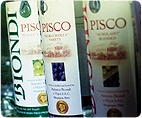
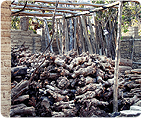
What is Pisco?
Pisco is a unique Spirit made only in Peru. It is produced from fermented fresh grape juice musts via a strict but simple process. Only eight grape are varietals allowed in the making of Pisco. Fermented grape juice musts are distilled in copper pot stills, rested in cement or steel tanks for 3-4 months (no wood aging), and then bottled.
Because Pisco contains no ingredients besides grapes, it retains naturally rich fruit aromas and flavors nuances. As a finished product, it presents an assertive and complex palate, with a velvety mouth feel and intoxicating aroma.
One taste of Pisco will transport you through the whole production process: from the fresh grape pressing, to fermentation and distillation.
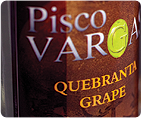
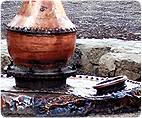
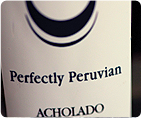
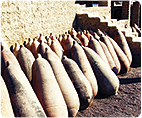

The Etymology of Pisco
“…Piscos, which is the name of birds…”
In Quechua, the language spoken by the Incas, “Pisku” (or variants “Pisccu”, Phishgo”, or “Pichiu”) means birds — specifically, birds that are known to fly the clear blue skies of the coastal area of Ica, a Province in the south of Peru.
Prior to the Conquistadores’ arrival in the Americas, there were different Inca civilizations — the Yungas, the Paracas, the Nascas, and the Piskos — inhabiting the coastal area of Ica.
During the 1400s the Piskos were known as great potters. One of the unique products made by the Piskos were receptacles made of clay, which were utilized to store liquid — in particular, Chicha, an Incan drink made of fermented maize. The clay receptacles became known as “piskos”.
When the Spaniards arrived and brought grapes to the New World, they used piskos to store their grape spirits. With time, the spirit itself took the name of its receptacle: “pisko”.
Pisco harvest became a celebrated tradition in the the Provinces of Lima, Ica, Arequipa, Moquegua, and in the Valleys of Tacna. Every February and March, the juicy and sweet ripened grapes were handpicked and taken in reed baskets to the lagar —a stonework platform. The celebrants pressed the grapes with their bare feet, singing and dancing to the rhythm of music playing.
Nowadays there are special presses to obtain the grape nectar. But regardless, celebrations always follow this long-standing tradition.
Enjoy a great Pisco Cocktail!
Salud!
Because Pisco contains no ingredients besides grapes, it retains naturally rich fruit aromas and flavors nuances. As a finished product, it presents an assertive and complex palate, with a velvety mouth feel and intoxicating aroma.
One taste of Pisco will transport you through the whole production process: from the fresh grape pressing, to fermentation and distillation.
Types of Pisco
- Pisco Puro No Aromaticas - Pur Non-Aromatic Pisco
- Pisco Puro Aromaticas — Pure Aromatic Pisco
- Pisco Puro No Aromaticas - Pur Non-Aromatic Pisco
- Mosto Verde — Green Must
- Pisco Acholado — Blended Pisco

